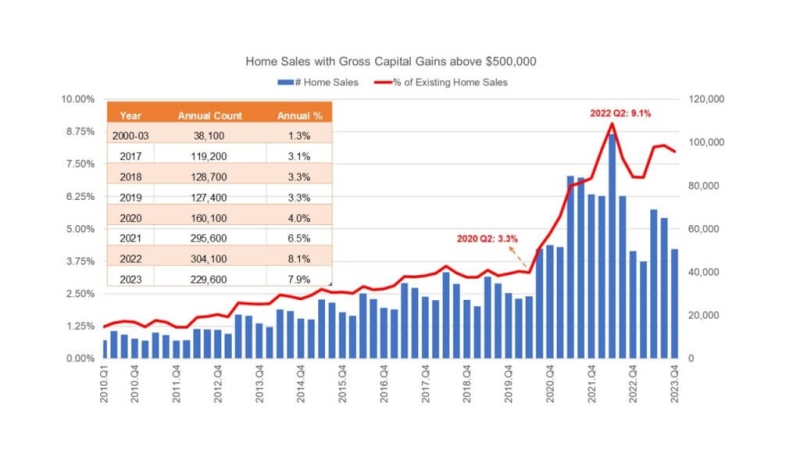May Housing Begins Plummet, While Building Permits Rise

Last month’s residential construction activity was something of a seesaw ride, according to the latest data from U.S. Census Bureau and the U.S. Department of Housing & Urban Development (HUD), with housing starts taking a month-over-month tumble, as building permits took a healthy leap.
Privately-owned housing starts in May were at a seasonally adjusted annual rate of 1,036,000, which is 11.1 percent below the revised April estimate of 1,165,000, but is 5.1 percent above the May 2014 rate of 986,000. Single-family housing starts in May were at a rate of 680,000, which is 5.4 percent below the revised April figure of 719,000.
However, privately-owned housing units authorized by building permits in May were at a seasonally adjusted annual rate of 1,275,000, which is 11.8 percent above the revised April rate of 1,140,000 and is 25.4 percent above the May 2014 estimate of 1,017,000. Single-family authorizations in May were at a rate of 683,000; this is 2.6 percent above the revised April figure of 666,000.
Furthermore, privately-owned housing completions in May were at a seasonally adjusted annual rate of 1,034,000, which is 4.7 percent above the revised April estimate of 988,000 and is 14.5 percent above the May 2014 rate of 903,000. But single-family housing completions in May were at a rate of 635,000, which is 5.2 percent below the revised April rate of 670,000.
Despite the lack of consistent good news in today’s data, the news was greeted positively by Jonathan Smoke, chief economist at Realtor.com.
“Today's data on new construction in May signals strong consumer demand for both apartments and single family new homes and healthy market fundamentals,” he said. “The increasing level of new construction is entirely consistent with the strong demand and corresponding price gains we have been seeing in both rents and home prices. Given the tight supply conditions in many major markets, signing a contract on a to-be-built home is one of the ways consumers can avoid being outbid in the quest to buy a home.”
Rocke Andrews, president-elect of NAMB–The Association of Mortgage Professionals and broker/owner at Tucson-based Lending Arizona LLC, agreed with Smoke’s view.
“Homebuilders are feeling pretty optimistic,” he said, noting that many builders were now acquiring land for new projects that will be ready in 2016. Andrews added that he was not concerned about the drop in housing starts, noting that they were “dependent on contracts that were signed in the previous two months, when there was a little uncertainty about the housing market and the economy as a whole.”
Yet Logan Mohtashami, an Irvine, Calif.-based senior loan manager at AMC Lending and a financial blogger at LoganMohtashami.com, saw the numbers as evidence that the housing market was in the midst of “the most magnificent renting cycle we’ve seen in a long time,” adding that builders are focusing on larger homes for financially secure consumers and not creating the starter homes that were traditionally the homeownership entry point for those in the twenties and early thirties – many of whom are now seeking out rental housing.
“We’re in year seven of a renting recovery and the builders know it,” he said. “The cycle will go on longer while builders continue building expensive bigger homes.”
Dr. Anthony B. Sanders, Distinguished Professor of Real Estate Finance at George Mason University in Fairfax, Va., used his Confounded Interest blog to question the role of the wider economy on the dismal housing starts numbers.
“Well, it's been over nine years since the Federal Reserve raised the Fed Funds Target Rate,” he wrote. “And housing starts are still below 1994 levels. The reason? Real median household income and average wage growth remain below pre-recession levels. With the pathetic wage growth ‘recovery,’ we would expect lots of five-plus units (multifamily) to be built and less one-unit detached. Today's numbers are no surprise.”
And there is a chance that things could get worse sooner than later. Grant Stern, president of Morningside Mortgage Corporation in Bay Harbor Islands, Fla., wondered whether confidence in the housing market in the second half of 2015 would evaporate if the U.S. Supreme Court rules against the ObamaCare in its pending King v. Burwell case, which some observers predict would result in the termination of health insurance subsidies to more than six million Americans.
“Talk about a de-stimulus,” he said. “You will see the difference between government spending and no government spending.”





